
Breaking
ground
on
cancer
care
This hospital allows those who have felt unseen to now be seen, to now have access, to now have resources and the very best of care. And it is in the middle of the South Side of Chicago, where health disparities have been great. All of us deserve the best opportunity to fight for our lives.
Candace Henley, Chair of UChicago Medicine’s Community Advisory Council, cancer survivor and founder of The Blue Hat Foundation (pictured here at the Cancer Pavilion groundbreaking)
Building
Illinois’ first
freestanding
cancer
pavilion
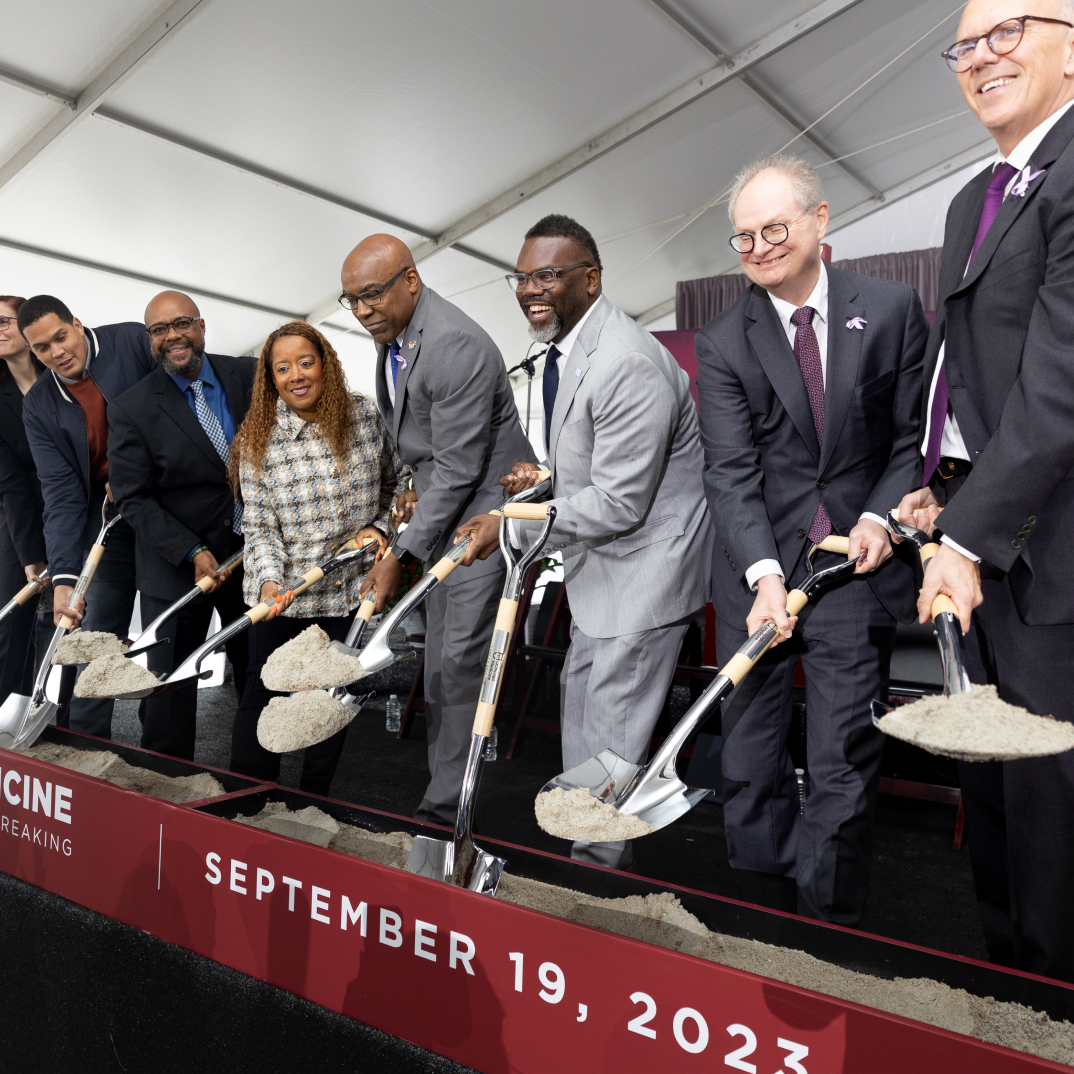
On September 19, 2023, the University of Chicago Medicine had a groundbreaking ceremony for an $815 million project to build the state’s first and only facility for cancer care and research.
Opening in spring 2027, the 575,000-square-foot, seven-story cancer pavilion continues many years of UChicago Medicine's work and leadership in cancer research as a Comprehensive Cancer Center. It will allow UChicago Medicine’s staff and researchers to better work together with all staff across the University of Chicago.
The Centers for Disease Control and Prevention (CDC) estimates that cancer rates will grow by 49% between 2015 and 2050 in the United States. On the South Side, cancer rates are expected to grow by 19% in the next 10 years, compared to 9% in the rest of the Chicago area. South Side residents are two times more likely to die from cancer as people living in the rest of the country.
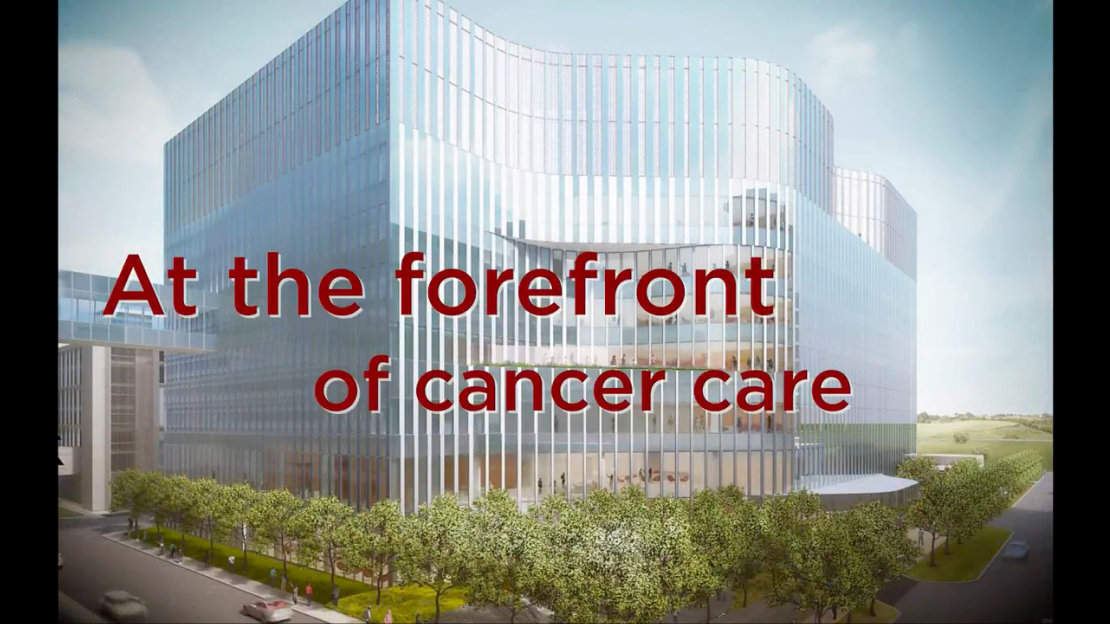
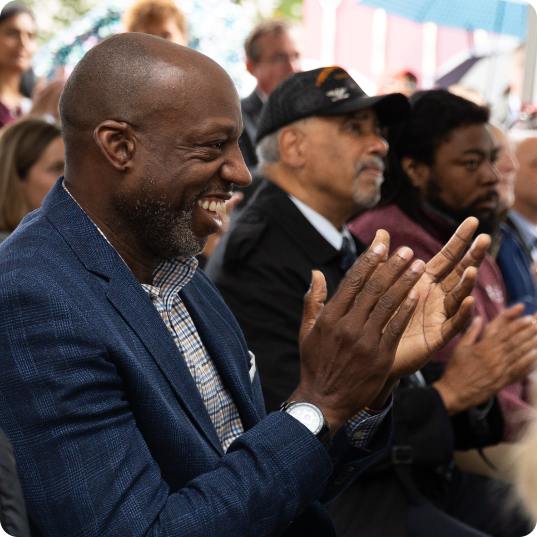
UChicago Medicine collected feedback from patients and the community so the new cancer center would reflect their needs. UChicago Medicine spent 10 months getting feedback that started with its Community Advisory Council, a group of volunteers who represent a diverse section of its service area.
200,000 surveys were shared in-person, on social media and online newsletters. UChicago Medicine worked to get patient feedback by engaging with faith leaders, community hospitals and city leaders.
The Cancer Center Patient Experience Council was developed in spring of 2022. The council provided ongoing feedback to help with the design of the new cancer pavilion.
Read more from Candace Henley, Chair of UChicago Medicine’s Community Advisory Council, who shares her experience with colorectal cancer and the need for care options on the South Side of Chicago (via Chicago Sun-Times).
Early
screenings
make a
difference

Early screenings make a difference
Sisters Working it Out (SWIO) was founded in 2001 by UChicago Medicine’s Monica Peek, MD, MPH. SWIO works to remove the many causes of high breast cancer death rates for African American women in Chicago.
SWIO, working as partners with UChicago Medicine’s WISDOM Study, helps patients who do not have insurance get mammograms. They also work on research programs with UChicago’s Institute for Population and Precision Health.
SWIO also works on community outreach with UChicago Medicine Comprehensive Cancer Center’s Office of Community Engagement and Cancer Health Equity (OCECHE).
SWIO services include:
- 3,000 boxes of fresh vegetables and fruits given out in fiscal 2023
- Since June 2023, a new free transportation service with Sisters Thriving Together (STT) and Uber helps women navigate care, from screening through survivorship
Courage to Quit is a telehealth group-based stop-smoking program. The program was developed by UChicago Medicine’s Andrea King, PhD, in partnerhip with the Respiratory Health Association.
The program helps patients use behavior and cognitive skills, and shares medication information. The program helps people learn how to quit smoking, reduce tobacco use and lead a healthy lifestyle.
Offered at the University of Chicago Medicine Comprehensive Cancer Center (UCCCC), No Smoker Left Behind is a program to help cancer patients quit smoking or smoke less.
The program is for all cancer patients who smoke. Patients take part in a short survey and are offered no-cost and insurance-covered treatment options in the hospital and other locations.
Reducing
barriers
to
care
and
treatment

The Office of Community Engagement and Cancer Health Equity (OCECHE) is part of the UChicago Medicine Comprehensive Cancer Center. OCECHE partners with community, cultural and religious organizations, and healthcare groups. Together they share up-to-date cancer education, research and information on clinical trials for culturally diverse populations.
In 2019, OCECHE began Latinos United for Cancer Education, Research and Outreach (LUCERO). LUCERO brings together Latinx/Hispanic cancer awareness, education and treatment efforts across the UChicago service area. Since it started, LUCERO has:
- Hosted 91 bilingual events (22 virtual)
- Reached over 5,000 community members
- Developed new partnerships with four community based organizations and four Federally Qualified Health Centers
- Trained 125 bilingual Community Health Workers (CHWs) on many kinds of cancer and clinical trials topics.
Urban Health
Initiative’s
chronic
disease
grantees
- Grant amount: $50,000
- Area of Service: South Chicago, Pullman, Chicago Lawn, Roseland, East Side and Avalon Park
- Self-Measured Blood Pressure Monitoring Program (SMBP). Expansion of SMBP to include community outreach and recruitment through community events.
- Grant amount: $50,000
- Area of Service: 60609, 60615, 60617, 60619, 60620, 60621, 60628, 60636, 60637, 60649, 60653
- Hopeful Hearts: A Holistic Approach to Managing Hypertension. This program teaches patients and families how to manage hypertension, and how they can make positive lifestyle changes with exercise, meditation and nutrition.
- Grant amount: $26,900
- Area of Service: 60609, 60615, 60617, 60619, 60620, 60621, 60628, 60636, 60637, 60643, 60649, 60653
- My Density Matters informs women on the South Side of Chicago about breast density and how it can affect breast cancer risk. Staff from the program take part in community events in the UChicago Medical Center service area.
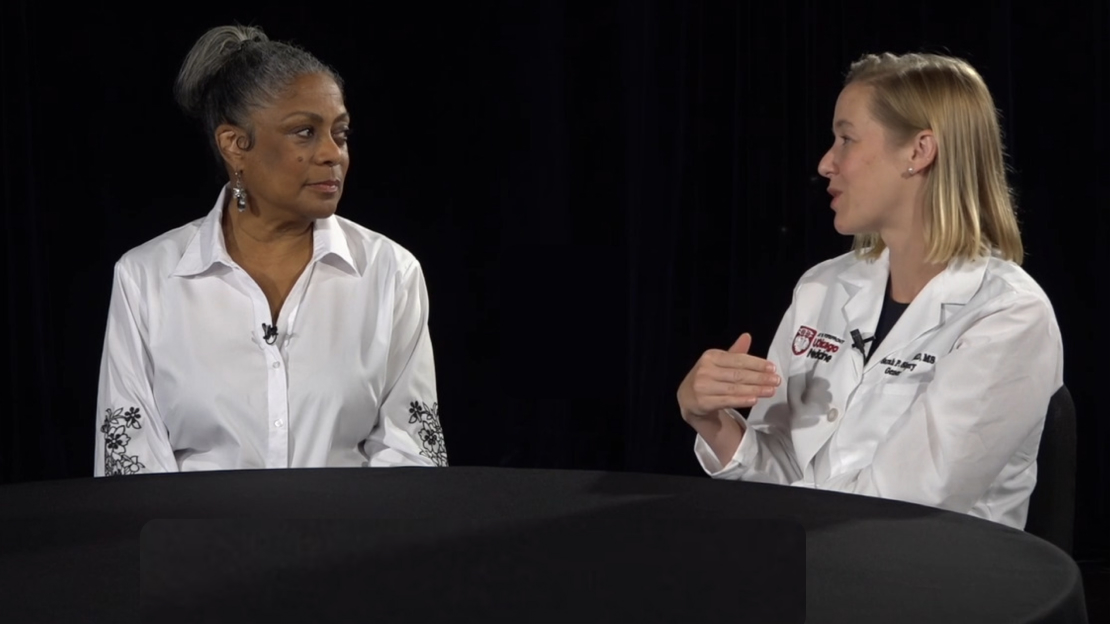
Building health And managing chronic diseases
Community Grand Rounds
2023 was Community Grand Rounds’ (CGR) 13th season of providing education programming in the community. CGR is hosted by UChicago Medicine’s Center for Community Health and Vitality, with support from the University of Chicago’s Institute for Translational Medicine and the Urban Health Initiative.
The events are held in person or online and often have UChicago Medicine experts who share information and research on leading community health issues. In 2023, CGR hosted seven events, with more than 330 people taking part.
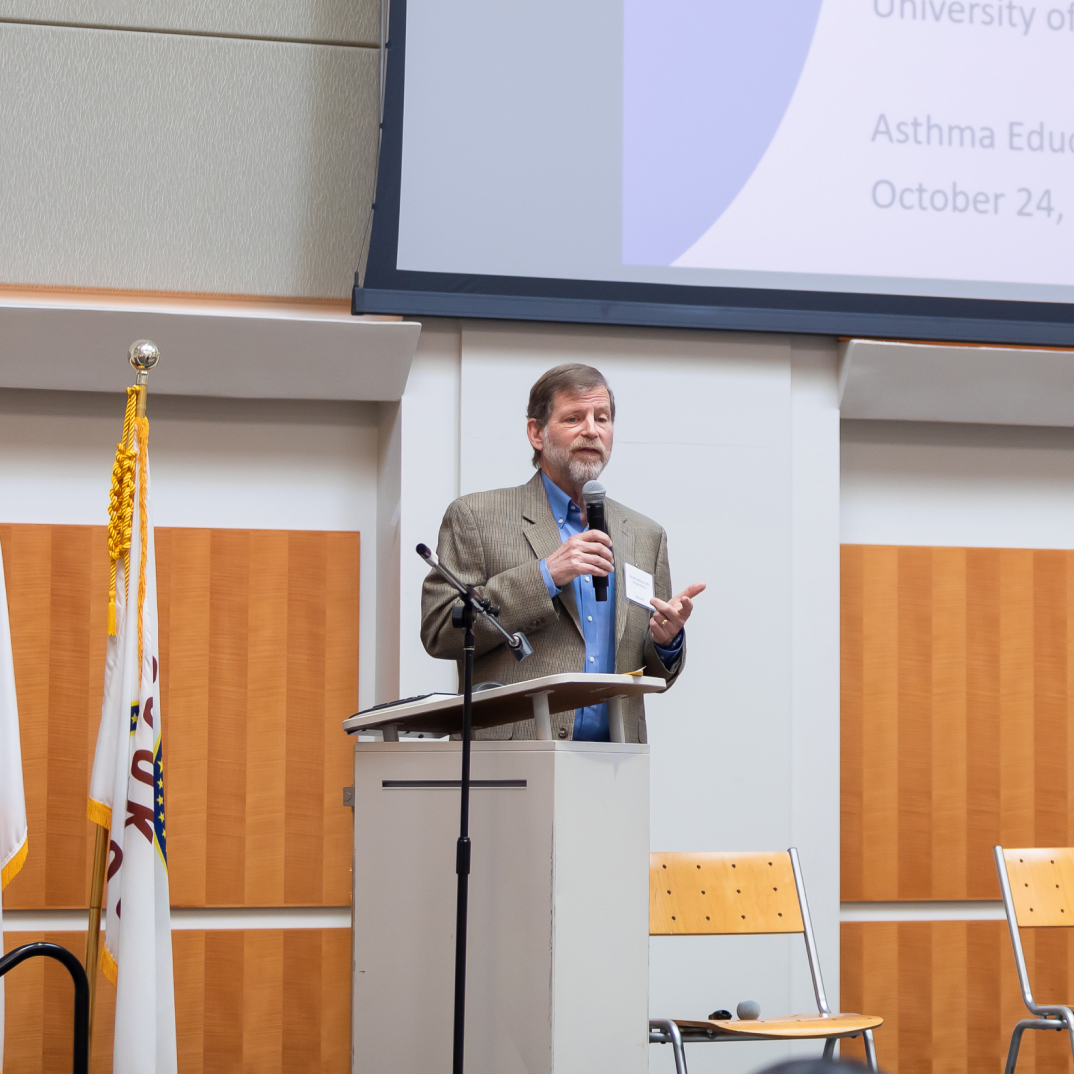
ECHO-Chicago
Launched in 2010, the Extension for Community Health Outcomes (ECHO)-Chicago provides primary care provider training in under-resourced communities. ECHO-Chicago connects healthcare providers in the community with subject matter experts online. They share best practices using “online rounding” and “tele-mentoring.”
In fiscal 2023, nearly 650 primary care and healthcare professionals from more than 350 healthcare locations participated in ECHO-Chicago programs. This past year, ECHO-Chicago included the following health topics to its programming: Hepatitis C in Pregnancy and Infants, Urinary Incontinence, and Vision Impairment. They also offered a Leadership Academy of Certified Nursing Assistants in Skilled Nursing Facilities.
ECHO-Chicago’s programming has covered more than 35 content areas, including:
- Adolescent health
- Behavioral health integration
- Childhood adversity and trauma
- Complex pediatric asthma
- Complex diabetes
- COVID-19
- Geriatrics
- Hepatitis C
- Opioid use disorder
- Pain management
- Pediatric ADHD
- Resistant hypertension
- Serious and persistent mental illness
- Women’s health
Benefits
of
the
ECHO-Chicago
Model
- Right Care
- Right Place
- Right Time
- Acquire New Knowledge
- Treat More Patients
- Build Community of Practice
- Reduce Disparities
- Retain Providers
- Keep Patients Local
- Increase Access
- Improve Quality
- Reduce Cost

